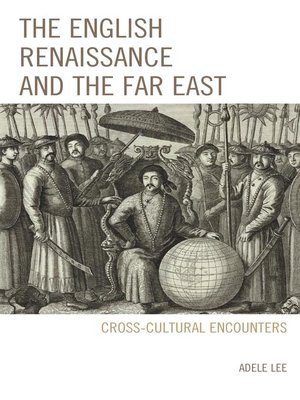
Sign up to save your library
With an OverDrive account, you can save your favorite libraries for at-a-glance information about availability. Find out more about OverDrive accounts.
Find this title in Libby, the library reading app by OverDrive.



Search for a digital library with this title
Title found at these libraries:
| Library Name | Distance |
|---|---|
| Loading... |
The English Renaissance and the Far East: Cross-Cultural Encounters is an original and timely examination of cultural encounters between Britain, China, and Japan. It challenges accepted, Anglocentric models of East-West relations and offers a radical reconceptualization of the English Renaissance, suggesting it was not so different from current developments in an increasingly Sinocentric world, and that as China, in particular, returns to a global center-stage that it last occupied pre-1800, a curious and overlooked synergy exists between the early modern and the present.
Prompted by the current eastward tilt in global power, in particular towards China, Adele Lee examines cultural interactions between Britain and the Far East in both the early modern and postmodern periods. She explores how key encounters with and representations of the Far East are described in early modern writing, and demonstrates how work of that period, particularly Shakespeare, has a special power today to facilitate encounters between Britain and East Asia.
Readers will find the past illuminating the present and vice versa in a book that has at its heart resonances between Renaissance and present-day cultural exchanges, and which takes a cyclical, "long-view" of history to offer a new, innovative approach to a subject of contemporary importance.
Prompted by the current eastward tilt in global power, in particular towards China, Adele Lee examines cultural interactions between Britain and the Far East in both the early modern and postmodern periods. She explores how key encounters with and representations of the Far East are described in early modern writing, and demonstrates how work of that period, particularly Shakespeare, has a special power today to facilitate encounters between Britain and East Asia.
Readers will find the past illuminating the present and vice versa in a book that has at its heart resonances between Renaissance and present-day cultural exchanges, and which takes a cyclical, "long-view" of history to offer a new, innovative approach to a subject of contemporary importance.






